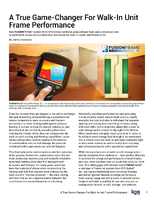IPC Committee urges industry to pursue R&D tax credit.
Share:
Press Release Summary:
The Government Relations Committee of IPC - Association Connecting Electronics Industries® released a whitepaper, The Research and Development Tax Credit or How your company could be losing hundreds of thousands of dollars (by not taking advantage of the R&D Tax Credit provisions). It explains how expenses associated with conversion to RoHS and lead-free assembly might qualify under the Federal Government's Research and Experimentation Tax Credit to reduce a company's tax obligations.
Original Press Release:
IPC Government Relations Committee Urges Industry to Pursue R&D Tax Credit for Lead Free Implementation Costs
IPC Government Relations Committee Urges Industry to Pursue R&D Tax Credit for Lead Free Implementation Costs
BANNOCKBURN, Ill., USA, March 4, 2008 - The Government Relations Committee of IPC - Association Connecting Electronics Industries® today released a white paper, "The Research and Development Tax Credit or How your company could be losing hundreds of thousands of dollars (by not taking advantage of the R&D Tax Credit provisions)." The paper explains how expenses associated with the conversion to RoHS and lead-free assembly might qualify under the Federal Government's Research and Experimentation Tax Credit, as it is formally called, to reduce a company's tax obligations.
According to Fern Abrams, IPC director of government relations and environmental policy, the purpose of the white paper is two-fold. "First, the Committee wanted to ensure that companies in our industry understood how they could be saving thousands, if not hundreds of thousands of dollars, by taking some time to document expenditures they've made in innovation and improvements. R&D is not limited to classic laboratory-type research as many believe, but includes process improvements such as those the industry has undertaken to comply with lead free regulations." Examples of qualified research expenditures that are often overlooked include wages paid to line employees involved in research activities, such as the evaluation of lead-free solders or surface finishes; and costs in quality assurance, engineering, product design and in-house software development.
A second impetus for the distribution of the white paper is to ask the industry to help urge Congress to extend the tax credit, which expired on December 31, 2007. "IPC members can benefit significantly, and gain a reprieve from their continued investments in lead free conversion, if Congress would instill a permanent tax credit that companies could then plan for and rely upon," adds Abrams. "However, achieving an extension from Congress in an election year will require a concerted effort by all parties involved."
Two pieces of legislation would extend the R&D credit permanently: H.R. 2138 in the House and S.2209 in the Senate. While both have attracted significant support, neither has yet achieved sufficient momentum needed to bring the issue to a vote. IPC members can help support this legislation by writing to their Congressmen and joining IPC and other members of the R&D Credit Coalition on April 9, 2008 for a "Fly In" Washington Lobby Day. Sample letters and information on the Fly In are available at www.ipc.org/R&Dcredit or by contacting Fern Abrams at fabrams@ipc.org.
The IPC white paper is available for free download at www.ipc.org/R&D-Tax-Credit-White-Paper. In addition, a free webinar on the R&D tax credit will be hosted by IPC on Monday, March 17. Visit ipc.org/R&D-Tax-Credit-Webcast-Registration to register.
About IPC
IPC (www.ipc.org) is a global trade association based in Bannockburn, Ill., dedicated to the competitive excellence and financial success of its 2,600 member companies which represent all facets of the electronics interconnect industry, including design, printed circuit board manufacturing and electronics assembly. As a member-driven organization and leading source for industry standards, training, market research and public policy advocacy, IPC supports programs to meet the needs of an estimated $1.5 trillion global electronics industry. IPC maintains additional offices in Taos, N.M.; Arlington, Va.; Garden Grove, Calif.; Stockholm, Sweden; and Shanghai, China.




